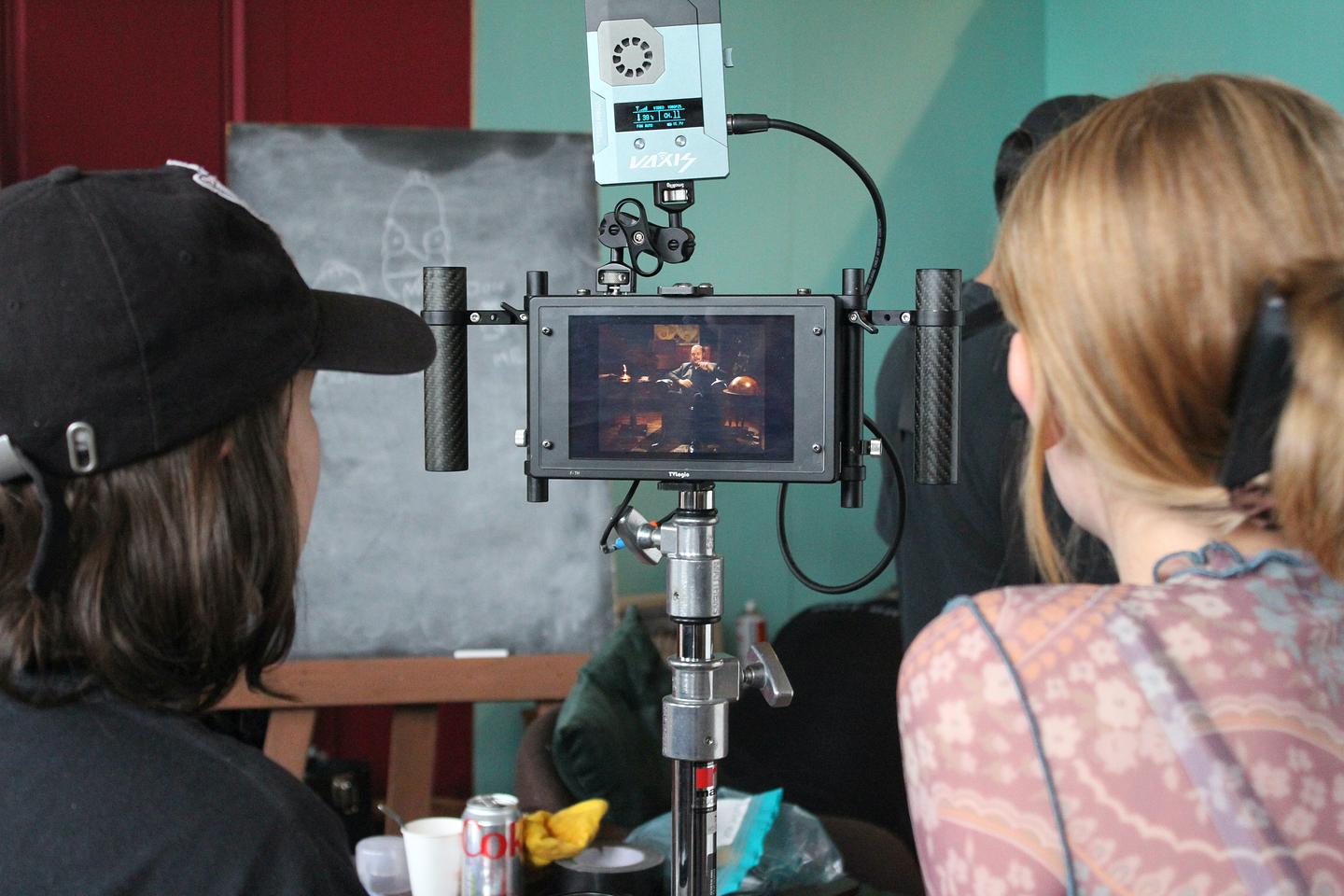Film Generator is a new two-stage training programme with North East Screen that seeks to support the most exciting early-stage writers and directors in the North to experiment, find their voice, and develop as storytellers.
*Applications closed Wednesday 11 December 2024 at 12pm*
STAGE 2
For directors
In Stage 1 we supported 4 projects with development to turn them into films suitable for the microshort format. Stage 2 of Film Generator is now open for Directors to pitch to work with the films supported in Stage 1.
Selected Directors will have group sessions with industry guests and one-to-one mentoring with Film Hub North Talent Executives. Sessions and mentoring will cover subjects such as stylistic approach, the directors role and stages of production. This will be followed by a practical event where we’ll look to shoot the scripts with a small crew to get hands-on experience of directing.
We’ll be looking for bold interpretations of the scripts, taking the material and elevating the drama with distinctive approaches. Directors will apply with a description of their vision for the film along with supporting documentation demonstrating how they’d interpret the script and what they’d bring to the material. This opportunity is aimed at new filmmakers with exciting approaches to composition, performance, tone, sound and visuals that bring a new dimension to the material.
Film Generator is however primarily a training programme for Directors. It is not a film fund and does not constitute BFI NETWORK funding. You will work with preselected cast, crew and locations and whilst there is a small amount of money to put toward the practical element, the primary goal of the programme is in talent development and getting on-set experience, not necessarily the work produced.
Scripts
All of the projects adhere to the following guidelines:
- max 10 pages
- max 3 characters
- max 2 locations
- ideally 4-7 minutes long
The projects we’ve supported in Stage 1 are:
Click through to read outlines of each of the scripts.
Here is the inspiration list for the programme that inspired the writers and we recommend directors watch too:
Who is it for?
This opportunity is open to anyone based in the
North of England who is looking to start a career directing for film or is early in their journey as a director. No previous directing experience is required but we’d expect you to be artistically inclined and have some experience in a creative area. We’re not prescriptive in what that is though. You could be in theatre, a painter, a writer, or be making creative TikToks or YouTube videos.
Filmmakers who have already made BFI NETWORK funded shorts are not eligible for this programme, but we’re open to alumni of Film Academies and Film Academy programmes such as the Microshorts scheme.
We’re particularly interested in applications from traditionally underrepresented voices. Some of the scripts tackle issues pertinent to certain groups of people so for those scripts we’re particularly looking for people from those groups.
Although the programme is supported by North East Screen applicants can come from anywhere in the North.
Stage 2: Timeline
Thursday 14 November: Stage 2 open for applications
Friday 29 November: Directors in Conversation event at ARC Stockton
Wednesday 11 December (noon): Stage 2 deadline
Monday 16 December: Stage 2 decisions communicated to applicants
Monday 27 January - Monday 24 February: director sessions, likely on Monday evenings
This timeline has the potential to change but we’re committed to confirming selections before Christmas.
North East Screen is the screen industries development agency for the North East. They work with emerging professionals, home grown filmmakers, production companies and artist filmmakers specialising in film, TV and screen-based arts, developing them through their talent development programmes.
Red Stamp Productions, with over £70,000 in funding from Innovate UK and South Tyneside Council, is opening a new post-production facility in South Shields designed to support the growing North East film and television industry. The facility offers a range of professional post services including, editing 7.1 surround sound mixing, colour grading, and a recording booth. As part of their commitment to supporting the region’s film industry, they are excited to collaborate with Film Hub North on Film Generator, enabling emerging directors to be among the first to utilise the new facility.


